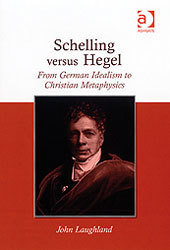Description
Schelling versus Hegel
From German Idealism to Christian Metaphysics
Author: Laughland John
Language: English
Subject for Schelling versus Hegel:
Keywords
Jakob Bohme; freedom; Freedom Essay; essay; Schelling’s Positive Philosophy; xavier; Schelling Insisted; tilliette; Xavier Tilliette; Pius IX’s Syllabus; Bin Der; God’s Free Choice; Vice Versa; God’s Liberty; Tractatus Theologico Politicus; Hegel’s God; Schelling’s View; Schelling’s Late Philosophy; Judeo Christian Theories; Eternal Law; Suum Esse; Schelling’s Philosophy; Dark Principle; Negative Philosophy; Man’s Rebellion; Man’s Liberty; Wissenschaft Der Logik; Fichte's Claim; Munich Lectures
183.14 €
Subject to availability at the publisher.
Add to cartPublication date: 10-2007
Support: Print on demand
Publication date: 09-2016
· 15.6x23.4 cm · Paperback
Description
/li>Contents
/li>Biography
/li>




